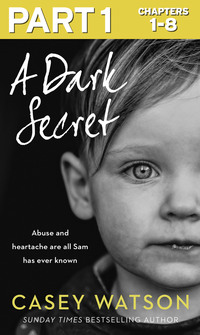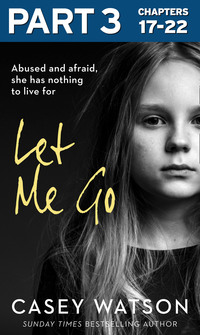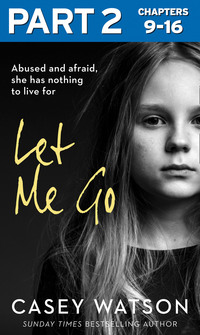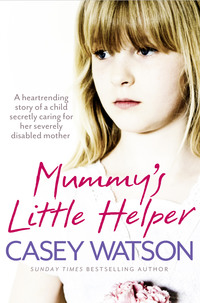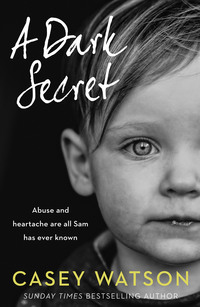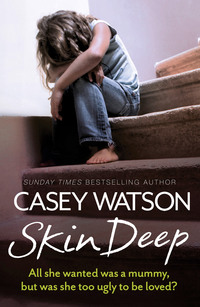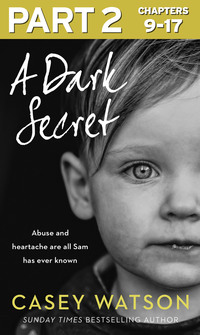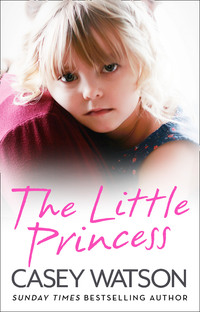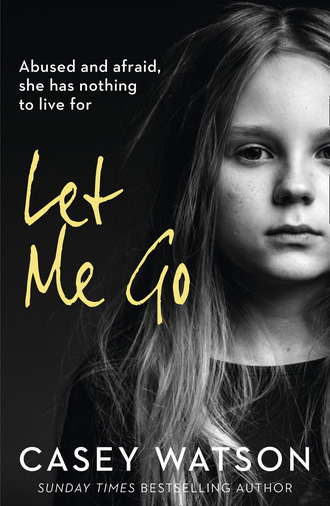
Полная версия
Let Me Go
‘You mean more in time? No way, Mike! I’m firm about that.’
‘No, I don’t mean in time – I mean in emotional investment. I mean more in the sense that, when it comes to day twenty-eight, you’ve become so emotionally involved that if things don’t work out with the girl’s mum, you get so weighed down with guilt and your usual “only I can see this through” mania that you can’t give her up, and I have to speak very, very sternly to you.’
‘That’s a long speech.’
‘Remember it. We can’t be everything, to every child, every time. Best we keep in mind that we’re just a step on the journey.’
‘Your destination is ahead,’ said the sat nav.
Chapter 2
We arrived at the hospital just as the rush hour was starting, but you’d never have known it in this semi-rural, out-of-the-way place. At first glance, you’d never know it was a hospital, either. It looked more like a manor house, with an equally grand garden: all mature trees, dappled shade and designer flower beds.
I only knew differently because I’d been here before. Our second ever foster child, Sophia (who had a multitude of problems that we felt at a loss to help with), had come here when she’d left us and I remembered driving up to the entrance as if it had been yesterday, as it had been such an emotionally charged day. It also occurred to me that we were here to collect another equally troubled soul – same gender, similar age – but making the journey in the other direction. Were we right to take this girl on, or had we acted too hastily?
Head over heart, I reminded myself as we approached the entrance, just as I’d told Ty a few minutes earlier. Our long-term foster child Tyler had just had his eighteenth birthday. The time when, legally, if he was no longer in education, he would be expected to fly the nest. The very idea seemed unimaginable to all of us. Ty, who had come to us aged eleven, after being arrested for stabbing his stepmother, was our ‘foster’ son only in name. I don’t know why, among all the kids who we’d opened our homes and hearts to, but it was obvious early on that we would never let him go. In reality he was as much ‘one of ours’ now as our own kids.
As such, and as he was the only one of them at home now, I’d called him to fill him in straight away; this was an unusual set-up for us all, after all, and it was important that he was fully on-message.
‘It’s difficult to explain the twenty-eight-day thing,’ I’d told him, ‘but it’s very much a temporary set-up. So the idea is to just work with this girl on that basis, as caretakers – so it’s not about trying to form the usual bonds with her. Like I said, it’s difficult, but I’ll try to explain more tomorrow. For now, just be polite and welcoming when we get back with her.’
He’d laughed. ‘As opposed to what, Mum?’ he wanted to know. ‘Anyway, I won’t be here. I’m just about to head over to Denver’s. But, yeah, it’s all cool.’
Cool. That was the thing. To keep cool and detached. But as soon as we stepped inside the building I knew my heart would try its level best to rule my head. Not good.
The reception of the hospital was exactly as I remembered it. Tastefully decorated, subdued lighting, smart blue cubic seating. And at its centre, seated next to a uniformed nurse, a kind of sun: a beautiful smiling child who seemed to light the whole place up. Not the cowed, nervous wreck of a girl I’d half expected. No, in her place was a girl with a head of bouncing, blonde-coloured curls, who looked straight at me, from a pair of the palest blue eyes I’d ever seen, and then stood, without prompting, to greet us. She was around my height. Possibly an inch taller. Which I’m obviously used to but in this case only enhanced the impression that there was a maturity about this thirteen-year-old girl.
‘You must be Mr and Mrs Watson,’ she said. ‘Thank you so much for agreeing to have me. I’m so grateful.’
I was taken aback even more, and not just by how articulate she was. She sounded so self-assured that I almost dropped into a curtsey.
‘Lovely to meet you, Harley,’ I said, recovering myself. ‘And please, call me Casey. And this is Mike,’ I added, turning to him. ‘No need for thanks, sweetheart, I’m just pleased we’re able to help.’
The nurse had stood up as well and now produced a large holdall from beside the seat. ‘All Harley’s things are here,’ she said. ‘Don’t forget your laptop is in the side pocket and sit on it,’ she added to Harley with a grin. Then, returning to us, ‘It’s been a pleasure looking after her. There are just some notes for you to take with you at the desk, but then that’s about it, I think. You all ready to go then, Harley?’
The girl smiled sweetly and, again, full of composure, she held out her hand to shake towards the nurse. ‘I’m all set,’ she said. ‘Thank you so much for all you’ve done, and please tell Doctor Dave I said goodbye.’
‘Oh, come here,’ the nurse said, pulling Harley in for a hug. ‘Doctor Dave will miss you just as much as I will, but we definitely don’t want to see you back here. And I mean that in the nicest possible way, okay?’
It seemed she wasn’t alone. By the time we’d signed our lives away and collected the paperwork, there had been further heartfelt goodbyes, as more people – staff and fellow patients by the look of it – seemed to appear specifically with the intention to wish Harley well. She’d obviously already touched a few hearts here. Though I noticed a certain stiffness about her too. As if she was not entirely comfortable at being touched.
I noted that, and also that she was silent once we climbed into the car and set off again, immediately plugging herself, via a pair of earbuds, into a mobile phone. She obviously wasn’t up for mundane chit-chat with strangers either and I couldn’t blame her. It had been a very emotional time for her, clearly.
I was also thankful for our sakes. Better she be plugged into whatever she was listening to than us all have to endure the sort of award conversation that would have been fine for a short trip, but not so great on a long journey – especially given why we all knew she was coming home with us. A very big elephant to have travelling in the car with us.
No, I thought. Better to get her home, settle her in and take things as they came. In the meantime we could relax and all draw breath for a while.
It was to turn out to be a very short while indeed.
Mike had only been driving for ten minutes or so, but, despite the coffee, I could already feel myself dozing off. (It had been a long emotional day, after all.) Which was why, when Mike yelled ‘What the hell?’, it genuinely made me jump, and I turned my head, following the direction of his horrified gaze through the rear-view mirror, to see Harley, no longer plugged into her earbuds, but jumping – literally leaping – from the moving car.
It all happened so fast that I could still see the image on my retina – a single fluid movement of the door opening and Harley lunging, then tumbling, out. I’d never even heard the seat belt click open.
‘Oh my God!’ I cried. ‘Mike!’
‘What the hell?’ he said again. He slammed the brakes on, pressed the hazards and pulled the car over to the kerb, while I watched Harley bounce down the road, like a rag doll, behind us.
He unbuckled his seat belt, as did I. ‘I can’t believe that just happened,’ he said, as we both scrambled out of the car. ‘Jesus! Thank God I was slowing down for the junction!’
‘Thank God no one was coming the other way!’ I added, as we jogged back up the road to where Harley had come to rest. ‘Should we phone for an ambulance, you think?’
‘Let’s check her out first,’ Mike said, kneeling down as he got to her. She was trying to sit up, but looked stunned and confused. Had she done it in some sort of unconscious fugue? We were as lost for words as we had ever been in our fostering careers. And more than a little shaken up ourselves.
‘Lay still for a minute, love,’ Mike said, placing an arm on her upper back to support her.
She shrugged his hand off with a sharp twist of her back. I noted that too. ‘No, it’s fine. I’m okay,’ she answered. Though she clearly wasn’t; the whole right side of her face was badly grazed; smeared with dirt and bits of grit, and already weeping blood.
‘You’re far from okay, love,’ I said. ‘It’s just a good job there were no other cars behind us.’ And even as I said that, another vehicle had to swerve and slam on their brakes to avoid us all huddled in the middle of the road. The driver slowed and wound down his window.
‘You all okay?’ he asked anxiously. ‘Do you need me to phone for an ambulance?’
‘I’m fine,’ Harley said again, scrabbling onto all fours, then to her feet. With that, and our first aid training, it seemed fairly obvious that there’d be no need to take her to A&E.
‘It’s okay,’ Mike said just as I was about to. ‘Nothing appears broken and we’ve just left a hospital. I think we’ll get her back there to get checked out, but thank you.’
‘I’m fine,’ Harley said a third time as the man drove off. ‘Why can’t anyone just let me go ahead and kill myself? God!’
Something heavy settled in the pit of my stomach. A profound sense of foreboding, I imagined, which felt like a stone. I proffered a hand in case she felt unsteady on her feet, but she batted that away too. I could see that her leggings were torn and one side of her hoodie had been streaked with black, oily marks from the road surface. Go ahead and kill myself. Great.
But I knew better than to tell someone with mental health issues not to be silly, let alone a child we had only just met, so instead I focused on the mundane.
‘Oh dear, look at your lovely hoodie,’ I said, standing back to give her space. ‘I imagine that will need a couple of washes. And your face is all scratched. Ouch, it looks pretty painful! Or, at least it will be. Let’s get you into the car again and we’ll go back to see the nurses; see what they can do.’
Harley limped back to the car and clambered in, wincing. If nothing else, she’d be stiff and bruised tomorrow. And I’d wake up wondering if what had just happened could have possibly just happened. And what if there had been a car coming the other way? What had we just done in taking on this kid? ‘Yeah, they’ll most likely keep me there,’ she said as she clicked on her seat belt. I thought so too. They clearly couldn’t tell us she was fine, could they? She’d just tried to kill herself again! ‘So at least I won’t be a burden to you after all,’ she added, smiling sweetly.
I noticed Mike flick the tiny child-lock switch as she did so, then head round to do the other side too. But I decided I should go for belt and braces. ‘A burden? You absolutely are not a burden, sweetie, but it is best we get you checked out, and I’m sure you’ll understand why I’m going to get in the back with you this time. I can’t believe you did that, honestly.’
I climbed in and she looked across at me as if I were a bit dim. ‘Why can’t you believe that?’ she asked. ‘Didn’t they tell you I want to die?’
I didn’t want to answer that, but this was definitely not a time for small talk, so once I’d found a pack of tissues and suggested that she use them – fresh beads of bright red blood were still forming and trickling down her face – I was relieved when she picked up the phone and earbuds she’d abandoned to do her death-defying leap; it at least allowed me to sit and try and process what she’d just done. Not to mention think again just how wrong they clearly were about her mental state.
Ten minutes later, however, we were in for another shock. While Harley was whisked away to have the wound on her face cleaned and dressed, Mike and I, having explained to the receptionist what had happened, were asked to sit and wait. Five minutes later, we were shown into the manager’s office, which was occupied by a woman who introduced herself as Mrs Raine.
‘I’m the manager,’ she elaborated. ‘I’ve just come off the phone to Doctor Phelps. And you’ll be pleased to hear that, after assessing the situation, we’ve decided that we won’t be bringing Harley back as an inpatient. The discharge stands, and if the nurses uncover anything from the accident that needs further treatment, we’ll be suggesting you go to your local accident and emergency department.’
I was stunned. Pleased to hear? ‘But it wasn’t an accident,’ I pointed out, a little more shrilly than I intended. ‘We’ve already explained what happened and I imagine she has too. Harley opened the door of a moving vehicle and jumped out on purpose. So I really don’t understand why she isn’t getting readmitted. She clearly isn’t well yet. In fact,’ I continued, ‘she actually said that she was determined to kill herself. She must have duped everyone here into thinking she was safe and able to leave.’
Mrs Raine smiled at us both, albeit grimly. ‘Mrs Watson,’ she said, ‘Harley has never stopped threatening to kill herself. She says it daily. But the fact is that she has been through all the tests, had all the counselling, been seen by a full team of psychiatrists and psychologists, and she doesn’t have a diagnosable mental health problem. Her problems are environmental and care-seeking.’
Care-seeking, that old chestnut. I bristled at the term. Actually that new old chestnut, because it was a phrase I’d first encountered only recently, at a new course I’d been on; the new politically correct term for what we’d always known as ‘attention-seeking’, because, they explained to us, that term was now derogatory because it indicated that a child would do anything, good or bad, just to get recognition – to get attention. Giving it a new name, of course, also gave it a new PC explanation. Which we duly had explained to us. In the new landscape of care there was a shift in the use of language and in this case it was all about positivity. No behaviour a child displayed could be seen, henceforth, as negative, because no matter what a child did, it wasn’t to get attention – it was only because they ‘needed love and care’.
I wasn’t convinced at the meeting and I wasn’t convinced now. Yes, it was obviously a good thing to approach a child with positivity, but there was potentially a dangerous side to it too. Prolific self-harmers were practically given a green light to do what they did and nobody would be officially allowed to get angry or upset about it, because it was simply ‘care-seeking’ behaviour.
I had railed to Mike about it at the time, and at some length, the bottom line being that if a child is hurting themselves, I believe ‘angry’ and ‘upset’ are two emotions that anyone can justifiably feel. So, positive, right now, I was definitely not. In fact, I was very close to asking Mrs Raine how she managed to conclude that Harley didn’t have a mental health problem when within half an hour of us taking her she’d jumped, fully intentionally, out of a moving vehicle. Surely, common sense told her – as it was definitely telling me – that the fact that she did so meant she did have a mental health problem, at least as most normal people would describe it? It didn’t matter a jot, actually, whether they prefixed it with ‘attention’ or ‘care’ – she was either seeking help because she needed it, or she was genuinely trying to die. Either way, that surely meant the right ‘environment’ for her was here, where she was contained for her own safety.
I didn’t trust myself to speak without ranting, however, so was glad when Mike stepped in instead.
‘Environmental, care-seeking or otherwise,’ he said firmly, ‘this girl just threw herself out of our car on a busy road. It’s only pure luck that she wasn’t seriously injured, or worse. Surely she must need some form of continuing professional help? And in a secure environment, for that matter, too.’
‘Ah, but was it pure luck?’ Mrs Raine asked, seeming to warm to her subject. ‘In our experience, Harley can be very manipulative and she’s very clever. It’s not the first time she’s done something extremely dramatic and luckily – there but for the grace of God, etc., etc. – she hasn’t been seriously injured. You will have noticed that she jumped out only when the car was moving slowly. If she’d been serious about wanting to kill herself or sustain very serious injuries, she would have timed it so it happened at speed, wouldn’t she? Perhaps on the motorway. Perhaps waiting till she saw a vehicle approaching from the other direction.’
We were both open-mouthed, wondering how to answer that, as she ploughed on. ‘The thing is, Mrs and Mrs Watson,’ – at this point she leaned forward – ‘our beds are in high demand for some very sick children. Children who’ve been diagnosed with severe mental health issues which we can treat, and I’m sorry, obviously, because I wish her only well, but I’m afraid Harley doesn’t fit the criteria.’
So much for all those hugs and fond farewells, I thought miserably. ‘But she’s clearly sick,’ I began, but Mrs Raine shook her head. ‘We’ve done all we can do in the six weeks she’s been here and to stay here any longer won’t be good for her. We have no diagnosis, which means it’s very hard to help her, and the truth is that she is – was – at risk of becoming institutionalised, adopting behaviours that she was picking up from other patients, none of which is going to help her in the longer term. I’m sorry, but this isn’t the place for her.’
Yet we were? Frustrated as I was, I understood the point she was making. Without a professional diagnosis, there could be no treatment plan. And though help was clearly needed, were they best placed to provide it? Any hint that they weren’t and it was really pretty obvious that their beds, which were precious, should be freed up for someone else who they felt more positive about treating. Passing on the problem, yes, but perhaps giving another child a better chance. And this child to a foster family. Us. Who must apparently take children leaping out of moving vehicles in their stride.
It seemed insane on the face of it, but resources were scarce. Short of refusing to take Harley – walking out, right then and there – we were all out of options bar accepting the problem and duly taking her home with us.
So, another ten minutes later, that was exactly what we had no choice but to do.
There was no trace now of her bright, polite greeting of an hour back (an hour and a lifetime back, it felt like) and though I opted to sit in the back again with her, Harley put her earbuds back in and said precisely nothing in response to my conversational gambits bar the odd ‘right’ or ‘okay’. Mike tried too – as keen as I was to punch a hole in the oppressive silence.
‘So, Harley? Let me guess,’ he tried, as the motorway flashed past and I gave thanks for child locks, ‘one of your parents was like me, perhaps? A Harley-Davidson fan?’
Mike loved absolutely everything about the iconic motorbike. Even if he didn’t have the actual bike – for him to ever own one would be a divorcing matter, frankly – he was still a long-term devotee. He had the T-shirts and branded coffee mug to prove it.
The response from Harley, this time, was immediate. And unimpressed. ‘Well, duh,’ came the reply, followed by a slow, sarcastic hand clap. And that was it. No follow-up, no explanation, no further wish to engage.
We gave up then and the rest of the journey was made in silence. I couldn’t even communicate to Mike via gestures, as I was on the wrong side for him to even make eye contact in the mirror. So it was that I was left to my own, troubled, thoughts.
I started to wonder about the family that this child had come from. I recalled Christine saying that the mother was widowed. So perhaps it was the dad, then, that had been the Harley-Davidson fan. Perhaps he’d even died in a tragic road accident? But there was nothing to be gained by weaving stories out of nothing. I’d find out the real story soon enough, I imagined. More important right now was to think about what we’d taken on and how we’d get through the next month. Not to mention the quiet night in we’d imagined. It already seemed like forever ago that little Annie and Oscar had gone. And here we were, plunged straight back into the deep end. Which was the nature of the job, so nothing out of the ordinary. But with a deep end that already felt substantially deeper and darker than it had a mere hour or so ago.
To pass the time as much as anything, I decided to text Tyler. Forewarned, after all, usually meant forearmed, and, in the circumstances, that seemed to make sense.
Hi, sweetie, I texted, just to give you a heads-up, this girl looks like being more complicated than we thought. Just to warn you, she jumped from the car a while ago and is a bit bruised up. The plan is the same – she stays with us for twenty-eight days – but please try to ignore how she looks when we get home. I’ll explain fully later on. xxx
My phone beeped back within seconds.
OMG! Okay, Mum. I’ll stick around at Denver’s then, okay? Makes sense, right?
Which it did, though it saddened me and once again, I wondered if we’d just made a massive mistake, especially with the new baby coming too. I glanced across at Harley’s battered, bruised and now swollen face and couldn’t escape the feeling that we had. But it was too late for that now, I told myself sternly, and at least it was finite. That twenty-eighth day would come round soon enough, however dark the journey might be to get there.
Chapter 3
I tried to brighten my mood as we finally walked through the front door. We’d taken Harley on, and now we were home, it was a case of rolling up our sleeves and getting on with it. It seemed quiet though, without Tyler there, and specially in contrast to having the two little ones running around. Quiet and gloomy now the sky was growing dark as well.
‘Right then,’ I said brightly, as Harley followed into the hallway. ‘Mike, why don’t you head up with Harley’s holdall?’ I turned to her then and smiled. ‘While I give you a quick downstairs tour so you can get your bearings first, yes? Then I’ll help you sort your things out.’
She shook her head. ‘If it’s okay, I really just want to go to sleep. If you don’t mind, that is,’ she added, already turning and following Mike up. ‘And I’ll sort my things out in the morning. I’m really tired.’
‘Oh, of course,’ I agreed. ‘You’re bound to be tired. In fact, that might even be better actually, because your room’s been in use – two little ones who only left us earlier today. So there’s a fair bit of sorting out to be done in there – toys all over the place, and the put-you-up bed still up, and clothes and bits and bobs still in all the drawers. I’ll just come up and quickly change your bed for you at least, if that’s okay.’
Harley turned around and nodded, but I could see irritation on her face. Presumably at the thought of having to spend yet more time with us – me rambling on about her room (I was already aware that I was) and fussing about sorting beds out when she really did just want to be alone. We got up to the landing and Mike dropped the bag in the doorway. ‘I’ll leave you girls to it, then,’ he said. ‘Put the kettle on. Give me a shout if you need anything moving or whatever.’
By now I could have killed for a restorative mug of coffee, so I wasted no time in grabbing a clean duvet set from the airing cupboard; one more suited than what was on there for our unexpected guest. ‘Butterflies!’ I announced, ‘much better than Peppa Pig and George and his dinosaur.’
Again, I got a nod and a flicker of a forced smile and then, unexpectedly, ‘Little ones? As in tiny children? Did their mum not want them either, then? That’s awful.’
It was the first bit of normal conversation I’d heard from Harley yet. She looked genuinely engaged, too, all of a sudden, looking down at the beds.
My turn to shake my head now. ‘Not in this case, I’m glad to say. Not in most cases, actually – it’s rare that a mum doesn’t want a child, more often than not it’s that they can’t cope, for one reason or other,’ I added, mindful of her own mother. ‘But, no, in this case, we were just looking after the little ones while their parents were in hospital. They’d been hurt in a fire, and didn’t have family close by to take care of them, so we said we’d look after them till they were well enough to come home.’


